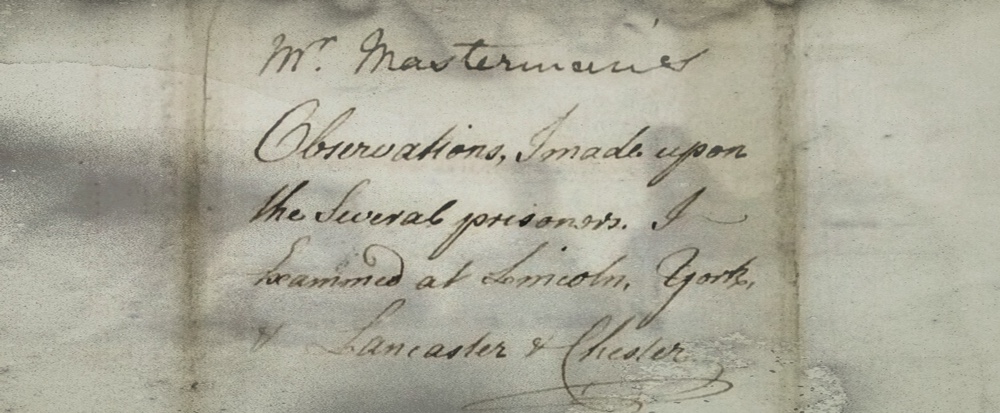Amidst the complexities of dynastic opposition and civil war during the later Jacobite era, the loyalties and material commitment of individuals were often in flux and have not always been so simple for historians to cleanly define. Allegations of significant Jacobite desertions have long been suspected (and more recently have been examined), but little scholarly enquiry has been made into cases of defection by soldiers within the government forces who were charged with quelling the Jacobite threat in Britain during the ’45.1 Resistance to martial service permeated both sides of the conflict, but deserting ranks to avoid combat is one thing, while joining up with the enemy is another entirely. Archival evidence shows us that soldiers in British service – including loyalist Highlanders on campaign in Scotland – deserted their units in smaller numbers than their Jacobite rivals, but incidents of soldiers breaking ranks was still a problematic issue for British army officers and Hanoverian officials.2 Digging deeper into the sources further reveals that some of these deserters found both cause and motivation to fight amidst the ranks of Jacobite rebels.
Tag: justice
In the spring of 1746 on a journey that lasted over two months, Henry Masterman and his clerk, Richard Wright, visited a number of jails in Lancaster, Chester, York, Lincoln, and London. There, these men interviewed Jacobite prisoners and took notes on their characters to assess their level of guilt and their willingness to testify against fellow inmates as witnesses for the Crown.1 Masterman was known for his experience with criminal prosecutions and for his great ‘fidelity’ to the government, borne out through his service in a similar capacity in the wake of the 1715 rising.2 Thirty years later he was once again asked to determine in what ways these suspects were involved in the Forty-five, including those who had ‘in any way fomented and encouraged it, as [well as] those who were actually in arms’.3 Masterman’s letters recount a tedious process fraught with the intransigence and dishonesty of many of the captives, in some places around half of which required a translator who could understand the language ‘universally Spoke in much ye greatest part of ye Highlands’.4
By the beginning of the new year in 1746, the British government once again found itself deeply mired in a civil war, as what would prove to be the final Jacobite challenge played itself out across Scotland and England, with France seemingly waiting in the wings. The Jacobite army had only recently recrossed the Scottish border after turning back at Derby, and just four months later its martial campaign would be ruthlessly crushed by British forces under William Augustus, the Duke of Cumberland, on Culloden Moor in the Highlands of Inverness-shire. Even in the midst of the crisis while both armies were still in the field, many hundreds of alleged Jacobite soldiers and civilians who were captured in the preceding months were already being examined and processed by agents within the Hanoverian government. After over half a century of dynastic and political contention that repeatedly manifested in clandestine plots and active Jacobite risings, these agents were sharply focused on creating a plan to punish treasonous activity that would ensure this was the very last time they would have use for one.5
To-do lists are not only productivity tools for busy modern lives. They were also used extensively by eighteenth-century British government officials to keep pressing topics close in mind, and some even fashioned their memoranda as checklists to ensure they did not miss anything especially important. We see this practice in a document from the British National archives, where Sir John Sharpe, Solicitor to the Treasury during the Jacobite prosecutions after the Forty-five, lists a number of tasks to complete in the winter of 1746-7.1 It is a particularly interesting archival document because it gives us some idea of what critical topics of conversation concerning the prosecution of Jacobites kept government officials occupied. The fact that this task list was written nine months after the Battle of Culloden demonstrates just how much judicial red tape still existed well after the last rising itself had burned out.
Paraphrasing Sharpe’s list of to-dos, we may look in on numerous important points of policy as well as how Jacobite prisoners under charges of treason were processed and treated:
Item #1
Considering the method of how to send prisoners-of-war in French service back to France.
Sharpe notes that he needed to speak at length with Sir Everard Fawkener, the Duke of Cumberland’s secretary, about a peculiar issue: just how to discern which of the prisoners-of-war were really from France, and which were actually born within the Three Kingdoms. This was an important distinction because both the rights and the treatment of prisoners facing charges of treason were different depending on whether they were ‘subjects of the crown’ or legitimate foreigners under the protection of Louis XV. Perhaps unsurprisingly, more than a few of the captured Scottish and Irish soldiers in French service feigned foreign provenance in hopes that it might secure them a lighter sentence – or even freedom altogether. After the recapture of Carlisle by the British army, for example, a Jacobite adjutant in Lord Kilmarnock’s cavalry troop masqueraded as a French officer until a corporal from Hamilton’s Dragoons revealed him to be an Irishman with whom he had already been familiar.2 The Lord Justice Clerk Andrew Fletcher, however, saw no difference between those born in Britain or beyond, stating that anyone should be answerable to charges of high treason if they ever ‘had Residence in the King’s Dominions before the Rebellion’.3
© 2025 Little Rebellions
Modified Hemingway theme by Anders Noren — Up ↑







